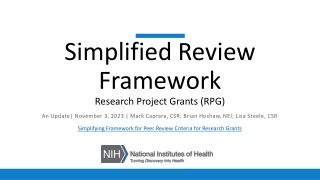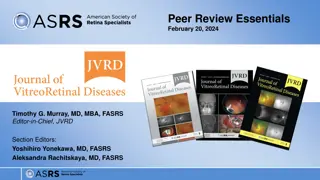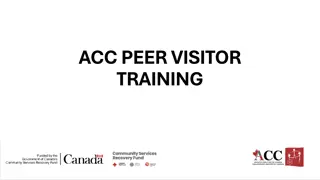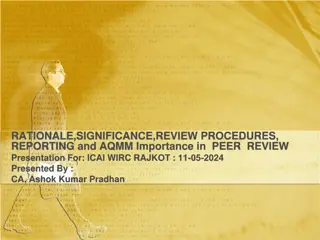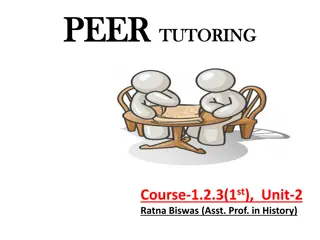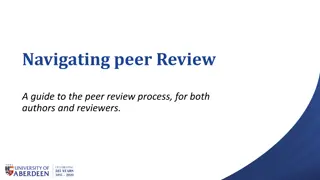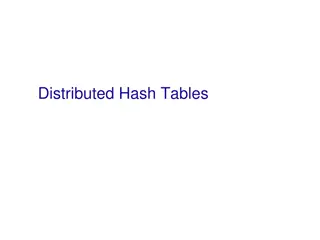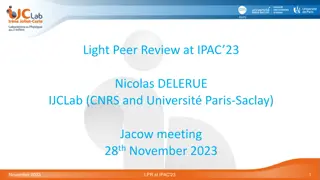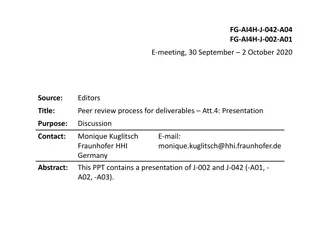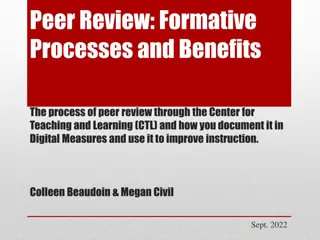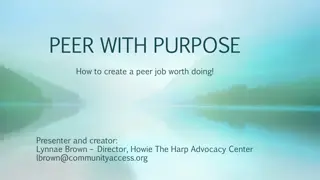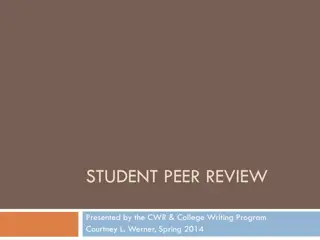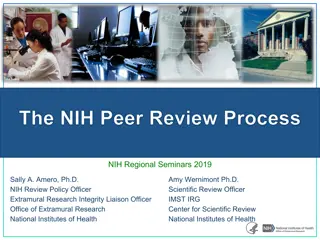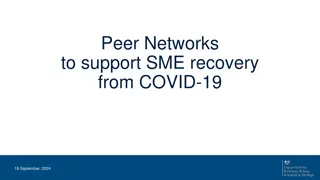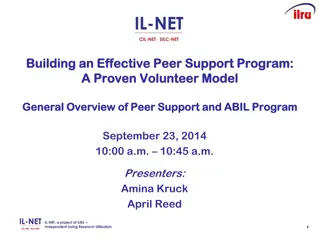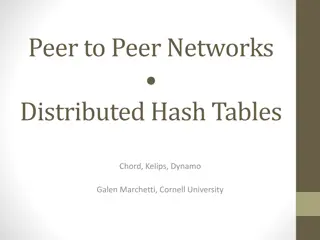
Effective Peer Review in Writing Classes: Benefits, Elements & Guidelines
Discover the importance of peer review in writing classes, including benefits for both instructors and students. Explore how peer review enhances writing skills, critical thinking, and communication. Learn about effective peer review practices and the key elements for providing meaningful feedback.
Download Presentation

Please find below an Image/Link to download the presentation.
The content on the website is provided AS IS for your information and personal use only. It may not be sold, licensed, or shared on other websites without obtaining consent from the author. If you encounter any issues during the download, it is possible that the publisher has removed the file from their server.
You are allowed to download the files provided on this website for personal or commercial use, subject to the condition that they are used lawfully. All files are the property of their respective owners.
The content on the website is provided AS IS for your information and personal use only. It may not be sold, licensed, or shared on other websites without obtaining consent from the author.
E N D
Presentation Transcript
Purpose, Elements and Design of Effective Writing Class Peer Review 1101 ML 07 3/25/2021 Professor Gertzog
Why conduct peer review in writing classes? It benefits the instructor. It benefits the students even more.
How does it benefit the instructor? It provides teaching opportunities that go beyond simple teacher- student communication. While there is usually only ONE instructor, there are many students to take on the role of peer teacher.
How does it benefit students? 1) Quantifiable research indicates that It helps students strengthen writing skills and better understand the writing process. 2) It helps students consider texts more critically and analytically during and after the process. 3) It allows students to clarify their own thinking as they explain to others. 4) It enhances confidence and gets students more involved in their own learning. 5) It enables students to view writing more of a form of communication than if the student is simply submitting to the teacher. A peer reviewer makes students more responsible to the audience.
Effective peer review 1) Possesses targeted expectations and goals. 2) Uses appropriate and meaningful language of praise and criticism 3) Is conducted on shorter essays (less than 5 pages). 4) Is conducted by a student reader rather than an evaluator.
Targeted Expectations and Goals Focuses on higher level issues (Content, Genre Elements, Structure) not mechanics (Grammar, Punctuation, Spelling). Is conducted in a timely manner in relation to its due date.
To provide meaningful feedback Don t: Use too much praise. Use advice that s too critical. Peers will be offended. Provide advice that s too vague or unspecific. Use the color RED
To provide meaningful feedback Do: Focus on what is positive. Give very specific support that you know would be useful to improve your own writing. Truly aim to assist your peer rather than going through the motions. Take this responsibility seriously!! Be consistent about how the feedback is given. (Colors, highlighting, written feedback)
Be a student reader, not an evaluator Try to use I clause (i.e. I think this would be better if or I don t understand this section) Your main focus is higher order items, not grammar and mechanics.
To Address Content: Evaluate the requirements of the assignment. Consider and enumerate the elements of the genre that you feel are most significant. Focus on what is truly important and what will improve the piece.
Sources The Writing Process: Using Peer Review to Develop Student Writing" (2015). Dissertations, Theses, and Student Research: Department of English. 99. http://digitalcommons.unl.edu/englishdiss/99 https://www.thegraidenetwork.com/blog-all/2018/12/20/how-to-make- peer-reviews-successful-part-1-of-2 https://dept.writing.wisc.edu/wac/making-peer-review-work/ For more on Peer Review Watch https://www.youtube.com/watch?v=tY8CX0J3ILc

